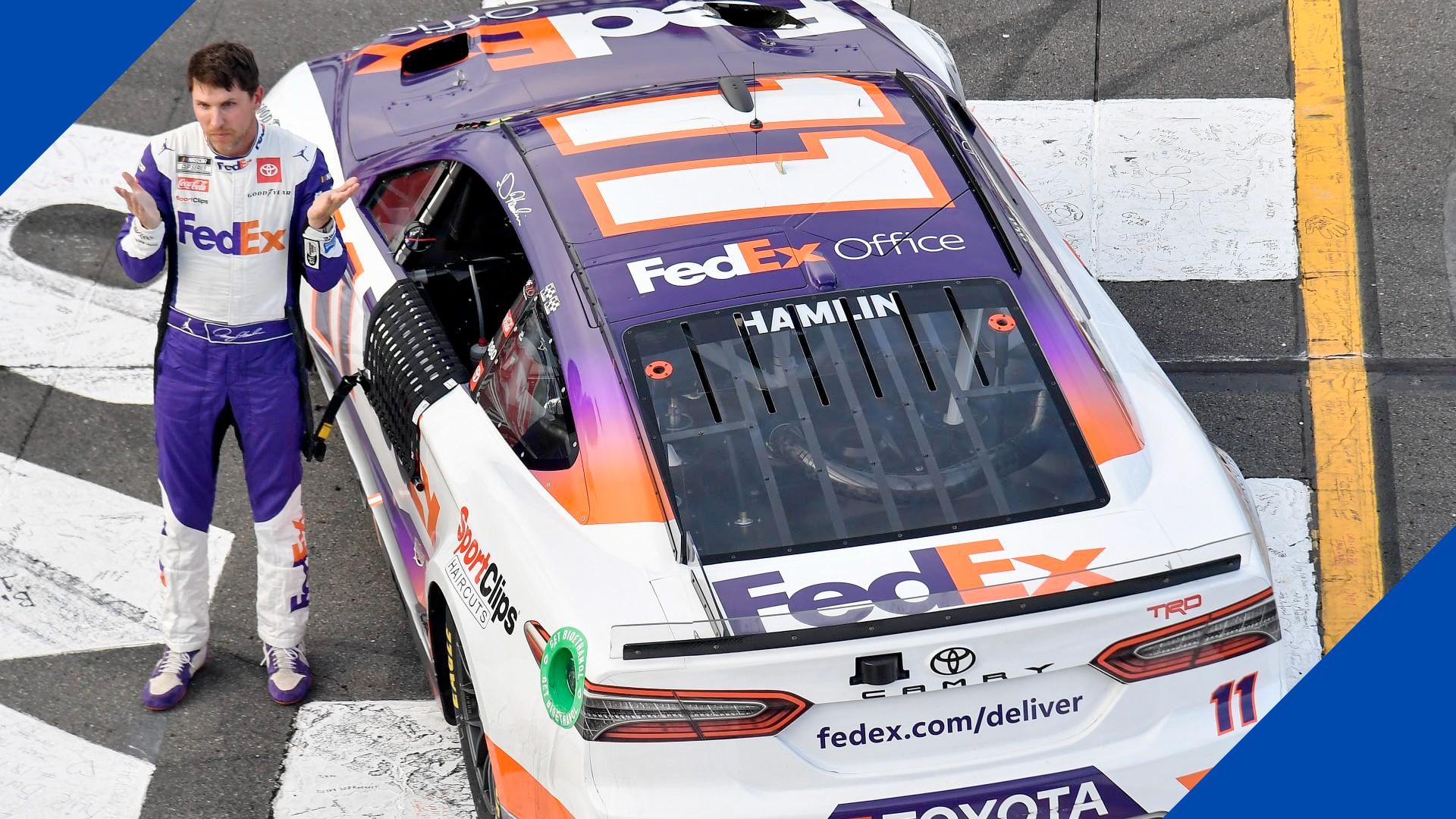Denny Hamlin: a name that elicits strong reactions in the NASCAR community. As a driver whose talent is universally acknowledged, Hamlin’s journey has been anything but ordinary. From working blue-collar jobs to becoming one of the most divisive figures in the sport, this article explores the complex dynamics that make Denny Hamlin the enigma he is today.
Survival Instinct
Denny Hamlin didn’t take the usual route to NASCAR stardom. He stands out for a blend of factors:
- Talent: Acknowledged by many in the industry;
- Hard Work: His background doesn’t feature significant financial backing;
- Family Support: His initial racing efforts were family-funded in Virginia;
- Breaks: Discovered by J.D. Gibbs, he got his start in Truck and Xfinity races.
Hamlin’s rise is different from drivers who gain high-profile spots through money or sponsorships. His first step in racing was family-funded Late Model racing. Soon, J.D. Gibbs saw his potential and offered him a lifeline, leading him to Truck and Xfinity races.
He has consistently underlined his blue-collar roots. Before racing, he worked in fast food, welding, and fabrication. This narrative strongly contrasts with younger drivers who enter the sport with considerable financial backing.
Hamlin’s long career boasts 51 wins, starting with full-time Cup racing in 2006 supported by FedEx. Despite his accomplishments, Hamlin is often labeled as NASCAR’s villain, a title he willingly accepts. Key events have fueled this perception. For instance, his collision with Chase Elliott at Martinsville and conflicts with Kyle Larson have not done him any favors.
Embracing Controversy
Denny Hamlin’s relationship with fans is complicated. His early career was neutral, marked by neither intense dislike nor strong support. However, his recent actions have earned him the title of a polarizing figure. Several reasons contribute to this:
- On-track incidents: Clashes with popular drivers have ruffled feathers;
- Fan loyalty: Long-standing allegiance to other drivers results in negative reception;
- Material success: Despite humble beginnings, his wealth is now a point of contention;
- Championships: Lack of a Cup series title fuels ongoing criticism.
Accepting his divisive role, Hamlin uses criticism as fuel for better performance. He is aware of the scrutiny for not winning a championship but argues that such a critique lacks depth. Winning a title, he believes, may not alter the established public opinion, which often overlooks his skills and focus.
As older, beloved figures like Jeff Gordon and Dale Earnhardt Jr. exit the sport, Hamlin willingly steps into the role of the ‘heel.’ It’s a role that he not only accepts but seems to relish. He stands firm in his abilities, stating that he could compete with past champions without a second thought.
Denny Hamlin is no ordinary driver. His tale is a tapestry of talent, conflict, and resilience, making him one of the most complex figures in NASCAR history. Whether loved or hated, Hamlin’s impact on the sport is undeniable, a result of his unique blend of skill, opportunity, and a willingness to embrace the controversy that comes his way.

